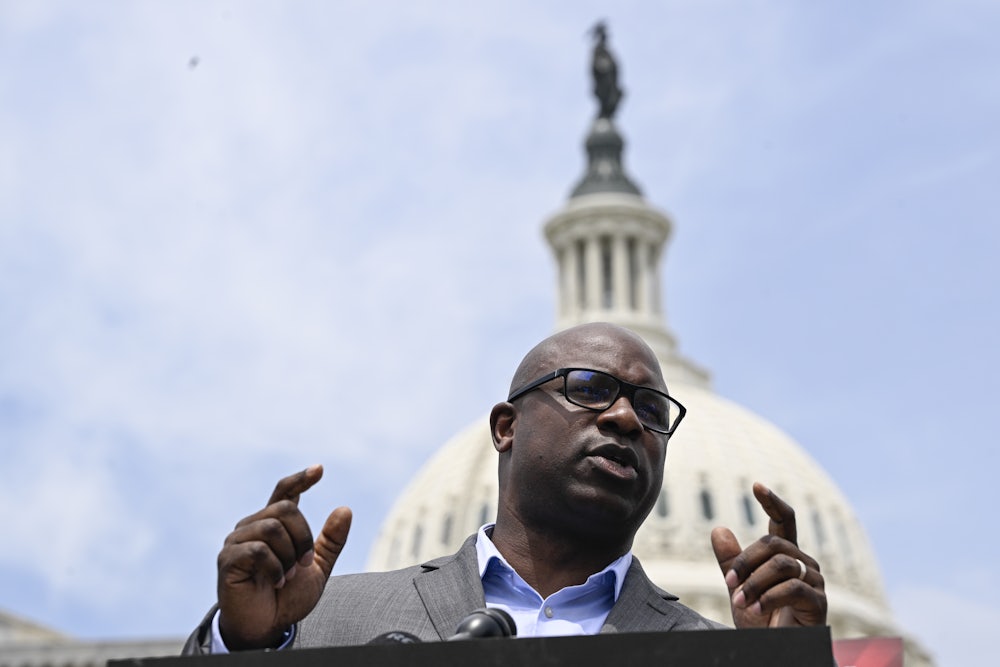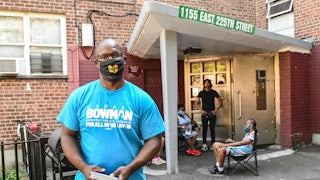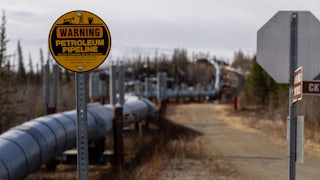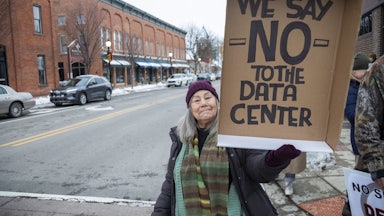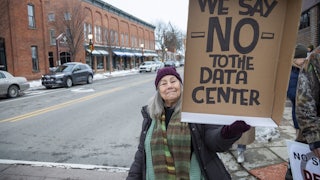Climate is a winning issue for Democrats, so much so that even Joe Biden, who won’t win any awards for best campaigner, knows it. That’s probably why this year, the president has finally paused new permits for the export of liquefied natural gas, sped up the permitting process for clean energy projects, and deployed the American Climate Corps, a climate-centered youth jobs program modeled on Franklin D. Roosevelt’s Civilian Conservation Corps. Yet much of the New York Democratic establishment is going in the opposite direction, lining up against an incumbent congressman who is one of the Green New Deal’s most passionate and pragmatic champions.
They’re making a huge mistake. The primary is next month, and it’s not too late to change course.
That incumbent is Jamaal Bowman, a Democratic Socialist who was elected in 2020 with strong support from Alexandria Ocasio-Cortez and the Justice Democrats. While leftists have previously criticized him for not being critical enough of Israel (he voted to fund Israel’s Iron Dome for defense, for example), the American Israel Public Affairs Committee, or AIPAC, sees it differently. Because Bowman has supported a cease-fire in the present conflict and called Israel’s ongoing massacre of Palestinians a “genocide,” Israel’s most prominent lobbying group is spending millions to unseat him. AIPAC’s Super PAC recently announced an ad buy of $2 million, which the group said it planned to spend all in one week.
Bowman’s opponent, George Latimer, is an unremarkable Westchester County executive prone to racist gaffes. Without AIPAC’s and its allies’ interference, he would certainly not be poised to defeat a congressman of Bowman’s accomplishments. Much of the local Democratic establishment—including the county Democratic committees and the more conservative wing of the labor movement—has lined up behind Latimer, despite the long-standing norm in New York City Democratic politics of supporting incumbents.
For many reasons, it’s disgraceful for New York Democrats to be so cowed by a lobby that works on behalf of a foreign country committing mass murder of civilians. But it’s especially deplorable considering how central climate should be for Democrats in this election cycle. Faced with an urgent climate crisis and a Democratic base hungry for climate action, Latimer has said, “There is not going to be a George Latimer climate change bill.”
Bowman’s climate record stands in sharp contrast to that complacent attitude. What’s more, in a political moment when environmental measures are so often vulnerable to populist critique—conservatives like to highlight how anything associated with climate brings inconvenience and expense to ordinary Americans—Bowman has consistently focused on climate policy that makes working-class people’s lives better.
Shortly after his election in 2020, Bowman launched a campaign to pass a Green New Deal for Public Schools, to address dangerously dilapidated public school infrastructure while also using public money to build green buildings and green energy. That campaign built important coalitions between parents, environmentalists, and unionized workers. Much of the GND for Public Schools language made it into the Build Back Better Act, Biden’s climate and infrastructure legislation, which passed the House in late 2021 but was eventually tanked by Joe Manchin. Even after all the standoffs and machinations, some of it made it into the Inflation Reduction Act. Bowman even played a significant role in passing the IRA itself; after Joe Manchin walked away from the Build Back Better discussions, Bowman joined with centrist Democrats Sean Casten and Nikema Williams in writing a letter to President Biden—signed by 89 members of Congress—calling upon him to restart negotiations with Manchin using climate as an area of common ground. Shortly thereafter Biden did reopen talks with Manchin, and the IRA eventually passed, including some of the climate provisions of Build Back Better. Despite flaws, the IRA was the most significant climate legislation the United States has ever passed.
Unusually for a congressman, Bowman was also critical to the passage of New York state’s biggest climate legislation last year: The Build Public Renewables Act, or BPRA, mandates that the state’s power authority build publicly funded renewable energy in the inevitable event that the private sector is not on track to reach decarbonization goals. (These state-level decarbonization goals were set in 2019, but until BPRA, New York had no plan in place to address the market’s more than likely failure to move beyond fossil fuels on its own.) Bowman used his powerful position as a congressman to lobby state legislators, especially the Assembly and Senate leadership, to pass the bill. After the passage of the IRA, he also made practical arguments to the governor about how BPRA’s passage would allow New York to access crucial federal funds.
As a member of the House Science, Space and Technology Committee and then-chair of the House Energy Subcommittee, Bowman was also instrumental in greening the CHIPS and Science Act. His work helped secure billions for regional tech hubs, including clean energy hubs, in areas that currently lack tech opportunities and training, with incentives for institutions like schools and universities to use federal money for low-carbon energy research. The funding that Bowman got into CHIPS also included extensive language on keeping wealth in underserved communities, incentives for worker cooperatives, addressing inequity in STEM fields, and creating more opportunities for people in marginalized groups.
He’s also brought millions into his district, as a congressperson should, including more than $10 million on climate priorities alone, for green space, water resilience, sewage rehabilitation, road upgrades, clean buses, flood mitigation, and more.
Bowman has also influenced discussions of global climate justice, working with House colleague Ilhan Omar to pressure the White House to drop its opposition to “loss and damage.” Loss and damage is the principle that the rich countries that have polluted the most should pay to help poor countries, who have polluted the least, mitigate and survive the climate crisis. The Biden administration, in a shocking reversal of several decades of U.S. policy, ultimately dropped their opposition to a loss and damage fund at the 2022 United Nations climate conference known as COP27.*
Bowman’s 2024 platform includes more ambitious climate policy. If reelected, he says, he’d fight to pass the Rebuild America’s Schools Act, older legislation that has now incorporated many of the ideas from the GND for Public Schools. He’ll also keep working to pass the Heating and Cooling Relief Act (introduced with AOC’s Green New Deal co-author, Senator Ed Markey), and a Superfund-style proposal—with Senator Chris Van Hollen—to make fossil fuel companies pay for climate damage.
These arguments might not sway the labor and Democratic leaders choosing to back Latimer over Bowman in this race. Perhaps it’s not surprising that people willing to take direction from AIPAC, an organization whose entire purpose right now is to politically legitimate a genocide, would also be indifferent to the climate crisis, which, if unaddressed, is expected to cause a quarter of a million deaths per year between 2030 and 2050 via undernourishment, malaria, diarrhea, and heat stress. That’s not even counting drowning, fires, and other serious dangers. While Palestine and the climate crisis are separate issues, it’s fair to call this primary a race between one side defending or downplaying mass death and another committed to fighting it. It’s critical to pick the right side in such a contest.
* This piece has been updated to clarify the shift in U.S. policy at COP27.
